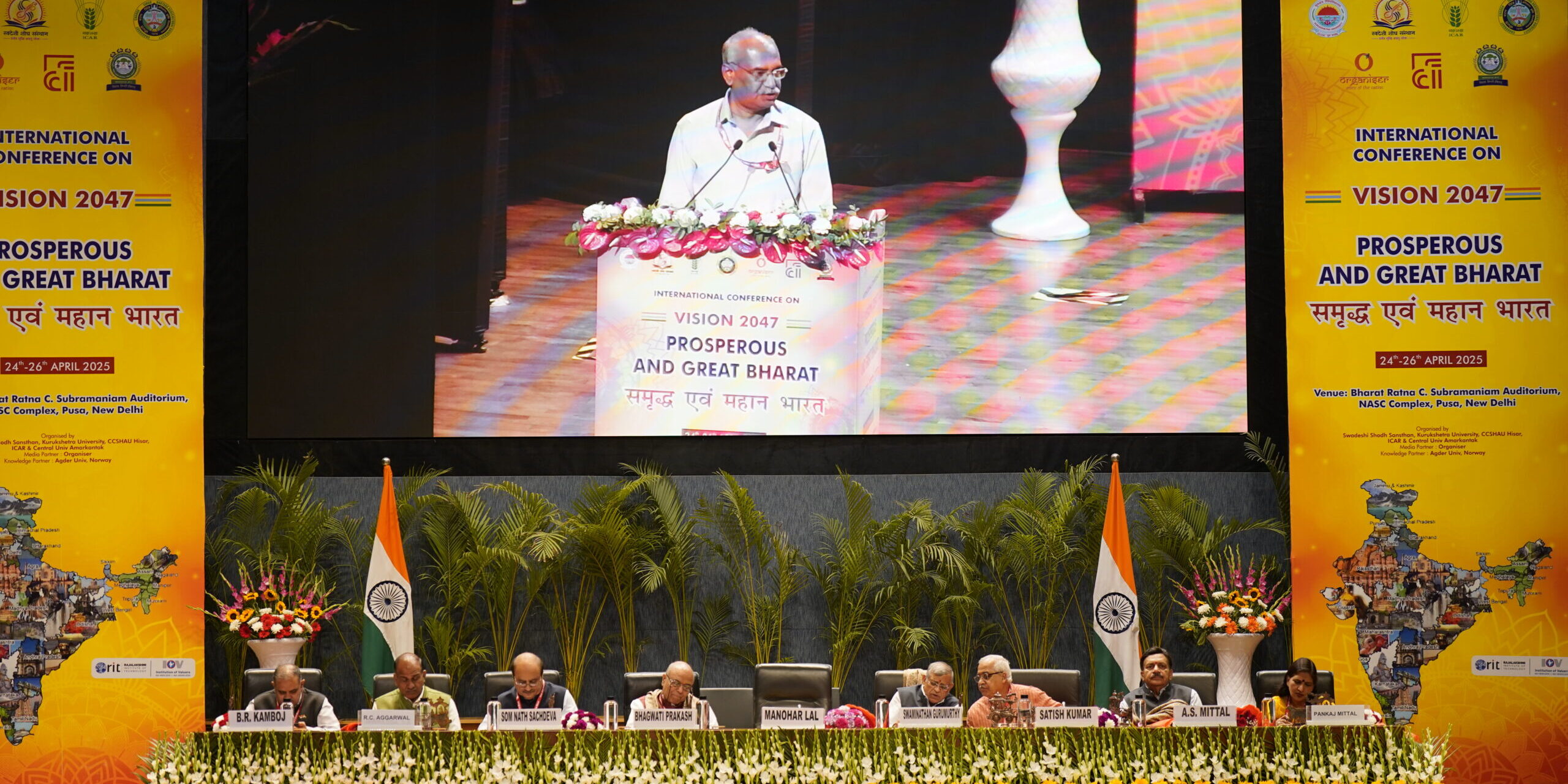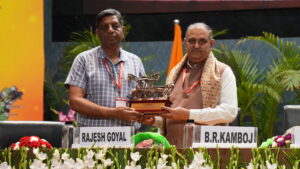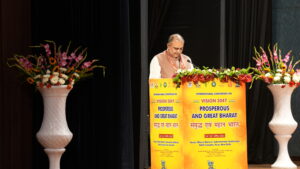International Conference Vision 2047: Prosperous and Great Bharat
Plenary Session-1 Report
Building a Leading Economy
Date: May 24, 2025
Time: 05:00 pm
Venue: Bharat Ratna C. Subramaniam Auditorium
Session Incharge: Sh. Ravi Pokharna Ji
Three Pillars of Development: Agriculture, Knowledge, and Innovation
As Bharat moves toward new dimensions of development, three distinguished speakers presented their perspectives, outlining a vision for the nation’s future. Their speeches encompassed themes ranging from agriculture, science, language, culture, and innovation, collectively pointing toward a clear path to Bharat’s Vision 2047.
Agriculture and Economic Self-Reliance – Prof. B.R. Kamboj
Prof. B.R. Kamboj centered his speech around Bharat’s agriculture-based economy, stating that if Bharat wants to become self-reliant, agriculture must be equipped with modern technologies. He emphasized the essential need for chemical-free farming and advocated for the promotion of organic agriculture. According to him, organic farming not only reduces carbon emissions but also supports a healthier environment.
He pointed out that technologies such as drones, precision irrigation systems, and smart analytics could revolutionize the farming sector. He also suggested transforming agricultural waste into economic assets through the “Waste to Wealth” model. For him, agriculture is not merely about food production—it is the future of the economy.
Demographics, Traditional Knowledge and Innovation – Dr. Raj Nehru
Dr. Raj Nehru presented Bharat’s demographic advantage as a strategic asset. He emphasized that if the youth are directed toward innovation, they could become the engine of economic progress. He highlighted the challenge that many of the thousands of patents registered in India do not reach commercialization. Hence, he stressed the need to bridge the gap between research and the market.
He also underlined the relevance of traditional communication systems like Matrika Vidya, which continue to contribute to linguistic and intellectual development. His message was clear—do not confine innovation to ideas alone; connect it to society and industry.
Culture, Technology and Vision 2047 – Sh. Prasunna Sharma
In his inspirational address, Prasunna Sharma envisioned a bridge between Bharat’s cultural heritage and technological future. He cited Vedic mathematics as a valuable resource for modern science, especially in cryptography and explained how ancient knowledge is still relevant in fields like digital security.
He asserted that Bharat’s linguistic diversity and religious identity are not weaknesses but global strengths. He stressed the need to make technology accessible in regional languages to ensure inclusive digital development. Speaking on Vision 2047, he stated that Bharat would need at least 1,000 unicorn companies, and for that, local thinking must be transformed with a global vision.
The central message of all three speakers was that to advance Bharat’s growth, not just economic policies but a holistic approach is essential. From farming to coding, from culture to startups, every dimension must be integrated.
Sustainable agriculture, living traditions, and vibrant innovation—these are the pillars of Bharat envisioned for the centenary of its independence in 2047.








